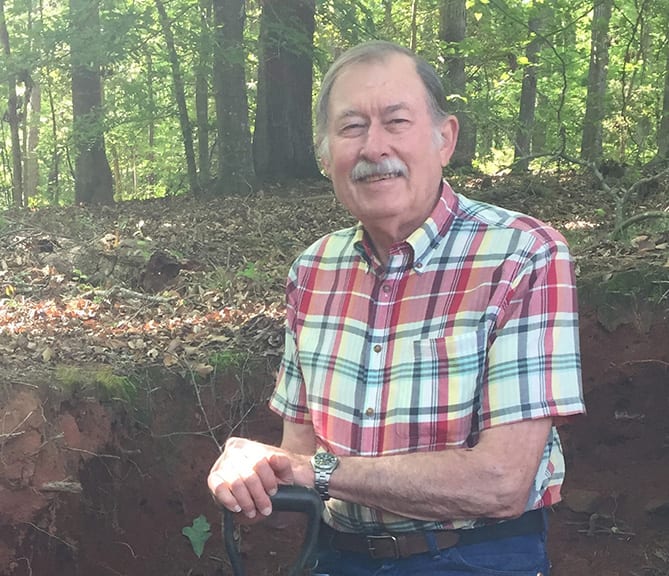A celebration of life will be held from 2 p.m. to 5 p.m. on May 1, 2021, with a tribute at 4 p.m., at the
Historic Ballenger House, 212 E. South 3rd St., Seneca, S.C. 29678.
Masks are required.
CLEMSON, S.C. – Clemson University soils professor emeritus Bill R. Smith spent more than 50 years growing and nurturing the next generation of soil scientists and now students and colleagues want to share the positive influence he made on their lives. Smith passed away on March 29, 2021, after battling cancer.
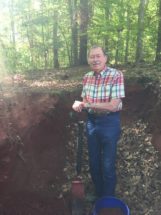
Smith’s career and life affected many people – in the local community, as well as in both national and international soils communities.
He taught soil science in Clemson’s Plant and Environmental Sciences Department and coached the award-winning Clemson Soils Team. Former students and fellow professors teamed up to honor him by sharing some of their fondest memories. Respect and love were common themes that kept popping up when someone was asked about Smith.
For Dara Park, Clemson soil and water specialist and associate professor, these memories include one from when she started teaching at Clemson and the soils team, The Muddy Tigers, was in need of a coach.
“Six years ago, Bill knocked on my office door,” Park said. “He wanted to know ‘What are we going to do about the soil’s team?’”
“I’ll coach if you do,” Park said.
Smith was a mentor, colleague, friend
For Park, Smith was a teacher, mentor and colleague, as well as a great friend. During their 5-year stint in coaching the soils team together, the team secured spots and many students ranked in the top 10 in regional and national contests. In 2018, a student ranked at the National Collegiate Soils Contest and went on to earn the number one spot at the International Soil Contest in Brazil.
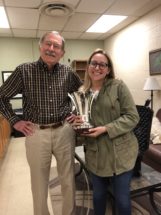
“I have no doubt that without his guidance I would not have been so successful,” said Anna Scott, the International award winner, who graduated from Clemson that year. “He was always so supportive of everyone and really encouraged everyone on the team to be their best. His coaching really taught me to absorb all the components of a problem and connect the dots to find solutions – which is very helpful in my consulting job today.”
Someone with a positive outlook is how Michelle Paris Thorp remembers Smith. Thorp earned her bachelor’s and master’s degrees in agronomy while attending Clemson.
“Dr. S (Smith) and Dr. Q (Virgil Quisenberry) both had such a great sense of humor during my college career in the Soils Department,” Thorp said. “My roommate Kellee (Melton) and I had many amazing and fun times with both of them including field projects and classroom teacher assistantships. Dr. Smith always looked on the bright side of things with his warm smile.”
Smith and Quisenberry were Thorp’s and Melton’s major professors when they were pursuing their master’s degrees. Melton is now an assistant state conservationist with the USDA National Resources Conservation Service (NRCS) for South Carolina. She has a picture of her and Thorp standing with Smith and Quisenberry on their graduation day.
“This photo has been on my desk for 21 years at USDA-NRCS,” Melton said. “I have looked to it many times throughout those years when I find myself sinking and doubting what I do. It is Dr. Smith who is responsible for my employment with NRCS and I owe him the world!”
Emory Holsonback graduated from Clemson in agronomy in 1988. He is an area resource soil scientist with the USDA-NRCS in Laurens County. Holsonback said Smith is the reason he is a soil scientist today.
“Dr. Smith has been the most influential person to me in my career,” Holsonback said. “The knowledge he shared in the classroom and especially in the soil judging pit, led me to a career as a soil scientist. I was on his team for two years and in my second year, we won the national championship (1989). He had a passion for soils. As a NRCS soil scientist, Dr. Smith and I worked together on various projects, including soil sampling and soil judging. He was always a joy to be around.”
“I not only called Dr. Smith a mentor and colleague, but I also called him a friend.”
Smith was a ‘true soil scientist’
Smith taught John Thorp soil taxonomy in 1978. Thorp is now a licensed South Carolina soil classifier and wetlands consultant in Mount Pleasant. He got his start by working for the North Carolina Department of Natural Resources (NCDNR).
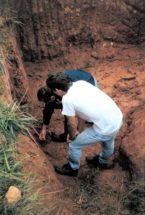
“Dr. Smith gave a positive job recommendation for me to NCDNR, which began my now 40+ year soil consulting career,” John Thorp said. “I will be forever grateful for his excellent instruction in the classroom and his personal advocacy.”
Thorp continued by saying, “Dr. Smith was a true soil scientist with the good heart of a teacher. His teaching longevity was outstanding!”
Smith was a product of West Texas and many of its western traits remained with him more than a half century since he arrived in the Carolinas. He was a farm boy who found his life-long passion in soil science at Texas Tech University. His soils mentor was B.L. Allen, professor and soil judging coach. Allen coached soil judging teams for 40 years, as Smith did at Clemson, winning the national championship five times. Smith was on one of those winning teams.
With an interest in soil classification, soil genesis, soil morphology and clay mineralogy, Smith enrolled in the graduate program at North Carolina State University under Dr. Stan Buol, one of the most outstanding research pedologists in the world. At the time of Smith’s enrollment, N.C. State was the premier soil science program in the Southeast in soil fertility, chemistry, and clay mineralogy.
After earning his doctorate, Smith spent a short time working as a soil scientist for a county health department in North Carolina, and then, in the early 1970s, he joined the faculty of the Clemson Agronomy and Soil Department.
Smith earned respect for his knowledge
Darwin Newton, a retired state soil scientist from Tennessee, first met Smith during the 1970s.
“The National Cooperative Soil Survey was in full gear back then mapping soils in counties all across the U.S.,” Newton said. “Many meetings and conferences occurred across state lines, as well as regional and national, concerning mapping methodology, soil taxonomy and many other related soil issues.
“Those meetings were where Bill and I first met. We formed a close relationship concerning or care for the soil survey program and later as we both worked with collegiate soil judging which had started on a regional and national level in the late 1960’s.”
Newton said it was easy to see Smith had two great passions in his work. One was the fostering and use of soil taxonomy and the second was teaching soil science to students.
On a more personal note, Newton said no matter where a meeting or contest may have taken them, he and Smith always made time for one night during that meeting to go out to eat somewhere together and just talk about our families and “sometimes a little about work.”
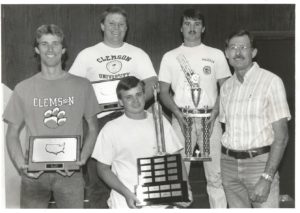
“These were great times and if anyone had been with us it would have been easy to see what a great person Bill was,” Newton said. “Easy going, extremely knowledgeable of soil taxonomy, a keen sense of understanding students and how to teach them in way they understood the material, his comments well thought out and always respected by everyone. Just a very, very special person to his profession and me as well.”
“I will always remember Bill as one of the greatest professionals in soil science and a friend who cared about people.”
As Newton notes in his memories, Smith’s research included a broad range of subjects.
“Bill always had an inquisitive mind,” Quisenberry said. “He worked with forest soils, land application of waste products, subsurface irrigation, preferential flow and soil forensics.”
In addition to guiding and mentoring students, Smith was also well-known throughout the Southeast soils’ community. Dennis DeFrancesco, a retired soil scientist with the USDA-NRCS, met Smith in 1976.
“I was introduced to Bill when he would attend NRCS, then the Soil Conservation Service (SCS), soil conservation progress reviews,” DeFrancesco said. “His opinions were quietly given, but they always made an impact, sometimes turning around the direction of the conversation. I loved hearing that quiet Texas drawl, too.”
Smith helped out the NRCS by testing soil samples.
“Bill’s soils lab would always get our sample results back really quick,” DeFrancesco said. “That was a huge help to settle issues.”
As for the Clemson Soils Team, Park continues to direct the team, manifesting Bill’s passion for teaching and excellence and educating the next generation of soil scientists.
-END-
Image gallery
Obituary
Get in touch and we will connect you with the author or another expert.
Or email us at news@clemson.edu

